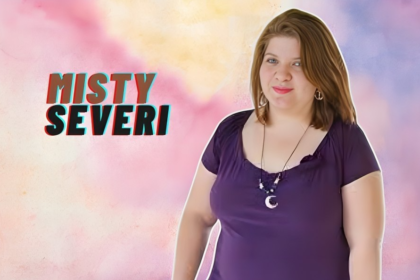Introduction to Adriana Chechik N Word
Adriana Chechik N Word, a name that rings bells in the adult entertainment industry, recently found herself at the center of controversy. The issue is A single word the N-word. This situation sparked debates around race, culture, and accountability in today’s society. With social media buzzing and opinions flying across platforms like wildfire, many are questioning what led to this moment and what it means for both her career and broader cultural conversations.
As we delve into this topic, we’ll explore not only Adriana’s choice of words but also the history behind them. Understanding these layers can shed light on why such discussions matter now more than ever. So let’s dig deeper into the meaning behind Adriana Chechik’s use of the N-word and its implications within our evolving cultural landscape.
The History and Context of the N-word
The N-word has a long and painful history in the United States. Originally derived from the Latin term for black, it evolved into a derogatory label used to demean and dehumanize African Americans.
During slavery, this word reinforced racial hierarchies. It was wielded as a tool of oppression, stripping people of their dignity and identity. The legacy of pain associated with it runs deep.
In the civil rights movement, many sought to reclaim the term within Black communities. However, its usage remains contentious even today. Some see reclamation as empowerment while others believe any use perpetuates harm.
Cultural context is essential when discussing language like this. The impact goes beyond mere words; it’s intertwined with centuries of struggle against racism and inequality. Understanding these nuances can shed light on contemporary conversations surrounding race and identity.
Why Adriana Chechik used the N-word
Adriana Chechik’s use of the N-word sparked significant controversy. Many were taken aback by her choice to say it, particularly given its charged history and implications.
Chechik claimed she was trying to be edgy or provocative. In the world of social media and adult entertainment, shock value often reigns supreme. Yet, using such a historically loaded term raises eyebrows for good reason.
Her statement revealed a lack of awareness about the word’s deep-rooted significance in American culture. It’s not just a word; it’s tied to centuries of pain and oppression.
For some fans, it felt like an attempt at humor that crossed lines many are sensitive about today. The cultural context is crucial here—a reminder that freedom of speech can sometimes clash with respect for marginalized communities.
The Backlash and Apology
The response to adriana chechik n word was immediate and intense. Fans, critics, and fellow industry professionals expressed their discontent across social media platforms. Many felt that her choice of language perpetuated harmful stereotypes and disrespected a term deeply rooted in racial pain.
Amidst the backlash, Chechik issued an apology. She acknowledged her mistake and explained that she didn’t fully grasp the historical weight of the word at that moment. Her attempt to clarify her intentions did little to quell public outrage.
Critics argued that intention doesn’t erase impact. The conversation shifted from just her words to broader discussions about accountability within entertainment circles. It raised questions about who gets a platform and how they should wield it responsibly.
Impact on Her Career
The situation surrounding Adriana Chechik and the use of the N-word has undoubtedly affected her career. Public perception shifted significantly after her comments surfaced online. Many fans felt disappointed, while others were outraged.
In an industry sensitive to cultural issues, this incident created a divide among supporters and detractors alike. For some, it was a moment that overshadowed her achievements and talent.
As she navigates through this controversy, Chechik faces challenges in rebuilding her image. Brand partnerships may be reconsidered, impacting revenue streams.
On social media platforms, engagement metrics tell a complex story. While some followers stand by her side, many have unfollowed or expressed their discontent publicly.
This event serves as a pivotal point in Chechik’s career trajectory. She now walks a fine line between artistic expression and understanding societal norms better than before.
Cultural Appropriation vs. Freedom of Speech
Cultural appropriation and freedom of speech represent a complex intersection in today’s cultural landscape. On one side, there’s the idea that individuals should express themselves without fear of backlash. This notion champions personal expression and creativity.
However, when that expression involves borrowing from historically marginalized cultures, it raises eyebrows. Critics argue this can diminish the original context or significance behind certain words or practices.
Adriana Chechik’s use of the N-word ignited discussions around these themes. Some defend her right to speak freely while others feel she overlooked the historical weight attached to her choice.
Navigating this terrain is tricky. It calls for sensitivity and awareness about how language impacts different communities. The line between appreciation and appropriation often blurs, leaving many to question where they stand on issues like respect versus expression.
Conclusion: Lessons Learned and Moving Forward
The controversy surrounding Adriana Chechik and her use of the N-word has sparked a significant dialogue about race, cultural sensitivity, and freedom of speech. While some argue for artistic expression, others stress the importance of understanding historical context and its implications.
This incident highlights how words can carry powerful weight. It serves as a reminder that individuals in the public eye must navigate their influence with care. The backlash faced by Chechik underscores society’s growing intolerance for actions perceived as offensive or harmful.
As conversations continue around these topics, it becomes evident that education is key. Engaging in discussions about language, culture, and history helps foster awareness and respect among diverse communities. Moving forward requires acknowledgment of past mistakes while striving for a more inclusive environment where everyone feels valued.
In this evolving landscape, both artists and audiences have roles to play in promoting understanding—balancing freedom of expression with cultural responsibility will be essential for future dialogues on sensitive issues like those highlighted by the Adriana Chechik N-Word controversy.






